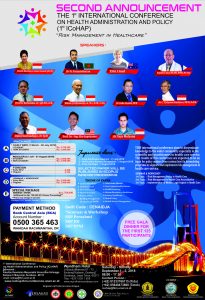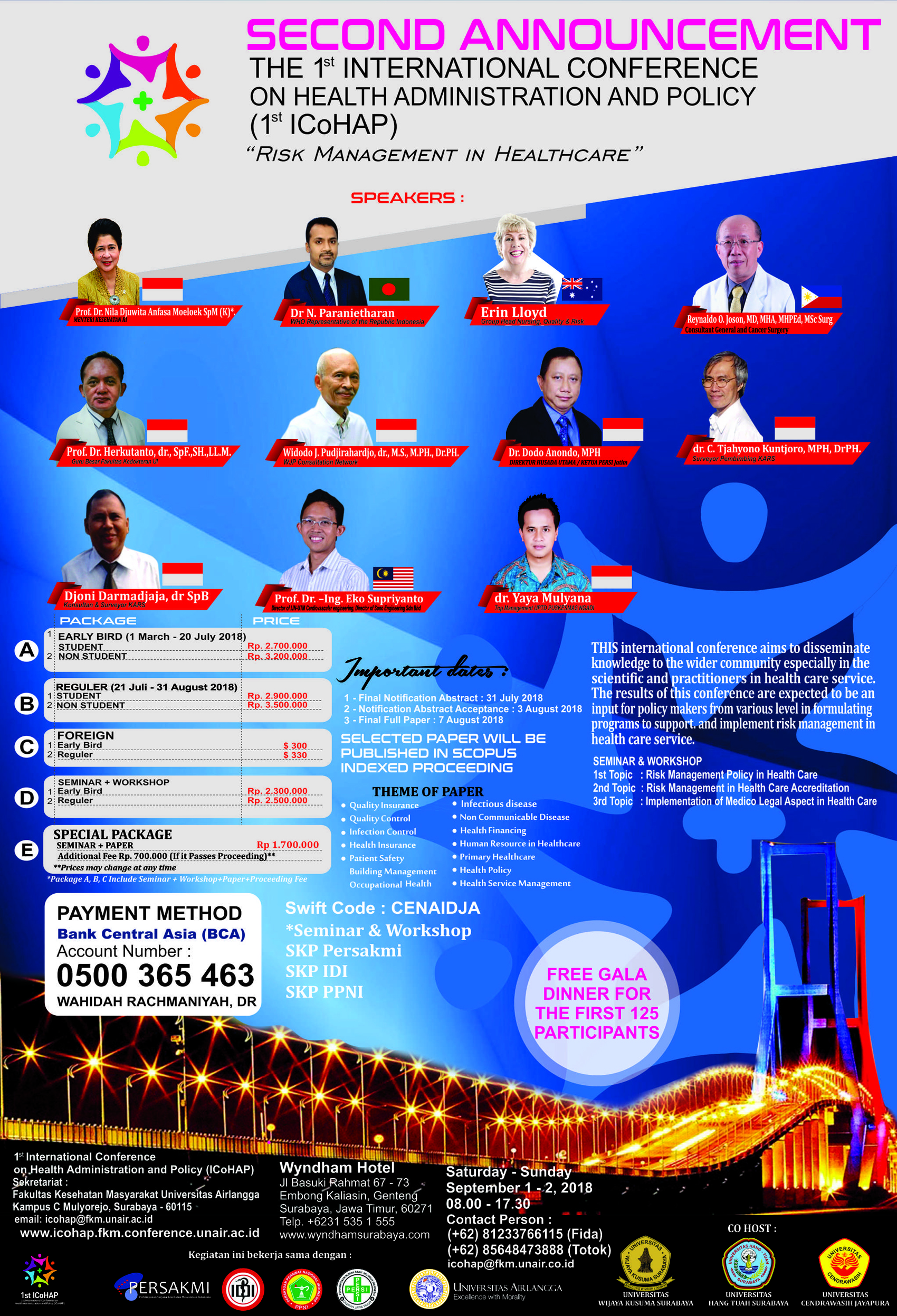Risk is a probability/threat of damage, injury, liability loss that is caused by vulnerabilities and that may be avoided through pre- emptive action/s. Interaction of humans with health systems poses a threat to them mainly because of the; complex technology, intensely complex procedures, high demand on services, time pressure, high expectations from the service users, hierarchical by nature of training and responsibilities.

There are many priorities to a healthcare organization, such as finance, safety and most importantly, patient care. WHO estimates that in developed countries 1 out of 10 patients is harmed while receiving hospital care. Predominantly the underlying causes of medical errors are; communication problems, inadequate information flow, human related problems, organizational transfer of knowledge, staffing patterns and work flow, inadequate policies and procedures and technical failures.
Given that each organization faces unique challenges, there is no silver bullet for risk management solution. Yet, since risks to patients, staff, and organizations are prevalent in healthcare, it is necessary for an organization to have qualified healthcare riskmanagers to assess, develop, implement, and monitor risk management plans with the goal of minimizing exposure. Challenges faced by administrators that should be addressed in a risk assessment plan include but are not limited to patient safety, mandatory federal regulations, potential medical error, existing and future policy, and legislation impacting the field of healthcare.
Organizational leaders must become “systems thinkers” who demand in-depth analyses of safety concerns, replace punitive reactions to mistakes with an open environment and proactively address any risks; there will be an opportunity to build safer health care organizations. However there is no room for reckless behavior in the healthcare environment.
The hazards of not preparing for potential issues can have significant, long-term effects. Neglection of comprehensive risk management plans in place can compromise patient care, increase liability risks, and result in financial losses.Thus, potential risks have to be evaluated and measured in terms of their potential negative effects. Based on the risk assessment, an organization-specific management plan should be developed, implemented, and monitored. To deal this challenge, Faculty of Public Health Airlangga University will hold international conference with the theme “Risk Management in Healthcare”.
The conference to be held is an awareness of university and scientific community to disseminate knowledge to the community, including
academics and practitioners in healthcare field. The conference will feature competent speakers in their respective fields from overseas as well as within the country and invite participants to submit research abstracts and other scientific papers (call for abstract submission).
THEME
AIMS
This international conference aims to disseminate knowledge to the wider community, especially in the scientific and practitioners in healthcare service. The results of this conference are expected to be an input for policy makers from various levels in formulating programs to support and implement risk management in healthcare service.
SCOPE
- Quality Insurance
- Quality Control
- Infection Control
- Health Insurance
- Patient Safety
- Building Management
- Occupational Health
- Infectious Disease
- Non Communicable Disease
- Health Financing
- Human Resource in Healthcare
- Primary Healthcare
- Health Policy
- Health Service Management

